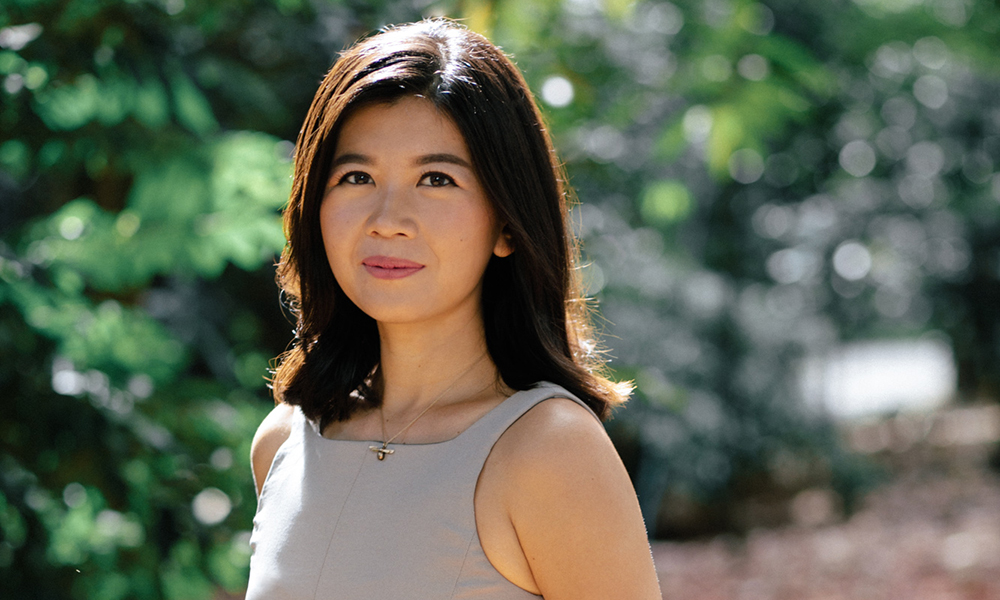Heng Publishes New Novel The Great Reclamation

Every time author and Assistant Professor of English Rachel Heng begins a new project, she asks herself, “what are the stakes?” Why is she writing this story?
When writing her new novel, The Great Reclamation, she saw her mother reminiscing about former greenscapes converted to tall buildings in her native Singapore. She grew up hearing stories of life before the high-rise filled city she grew up in. “My mother would go to places and say, ‘oh, you know, we used to live here, but I don’t really know where it is anymore because they changed all the roads,’” Heng said.
Heng’s mother lived in a wooden shophouse with no running water when she was young. Other family members grew up in rural areas without electricity. She said she always felt there was a feeling of loss for the pre-industrialized era of Singapore amongst its elder citizens. She said it felt like, “an immigrant narrative of sorts, except they hadn’t left.”
Her stakes were her history—her family’s and her native nation’s.
“If the story matters to you, the reader will sense that it matters to you because you are going to write it in a particular way,” Heng said. “The introspection is going to be deeper. Your vision is going to be more compassionate, more interesting, more expansive, than if you’re just writing something in a mechanical way just to tell a story.”
Heng said the response to the book has been overwhelming. The novel was released on March 28 and has received rave reviews thus far. It was profiled in The New York Times and The Seattle Times; Amazon named it a “Best Book in April” and The New Yorker listed in its Briefly Noted section as a “Best Book of 2023.” It was also recommended on NBC’s Today Show and NBC New York’s Weekend Today.
“It’s one that’s so close to my heart, and it’s really about my home and my history,” Heng said. “The fact that people are reading it so intelligently and responding to it from the heart, that’s been very moving to me. I really couldn’t have hoped for it. I think it’s more than I hoped for.”
The Great Reclamation takes the reader through the Singapore’s fight for independence from British rule, the occupation of the nation by the Japanese Army during World War II, and the large-scale land reclamation projects that followed.
The story is told through the eyes of a young boy named Ah Boon—the son of a fisherman who can see movable islands that others cannot—who is in love with his neighbor, Siok Mei.
Heng called the book, “a coming-of-age story of a little boy set against the coming-of-age story of a young nation coming out of colonialism.”
“It is a story about how we become the people that we eventually do, and the choices that we make, but also the choices that are allowed to us within the context of our time and place,” Heng said. “I think that it’s a story that hopefully everyone can relate to.”
Heng will be giving a book talk with Visiting Assistant Professor of English Emma Copley Eisenberg at RJ Julia on April 12 at 5 p.m.
“I’m very excited to discuss Professor Heng’s new book with her and delve more deeply into all the questions the book raises—about family, about Singapore, about land and climate change, and about how we tell stories using both realist and magical elements,” Eisenberg wrote.
The Great Reclamation is Heng’s second book, her debut novel Suicide Club was published in 2018. She has also published several personal essays recent months. She wrote an essay for The Atlantic on creativity and motherhood, a piece for Esquire on her life-long search for home, and another for Literary Hub on remembering her life in Singapore through Milo—a chocolatey powdered drink mix.
Heng’s work is alive with emotion and filled with turns of phrase that make a reader pause to re-read. It’s honest, it’s blunt, and it’s full. Her stakes breathe through every word.
Heng wrote a personal essay on her choice whether to have children titled “How Could I Deny Him Fatherhood,” for The New York Times in February. In a summation of her life and relationship leading up to this decision, she wrote, “We got married, bought a house, got a mortgage. My estranged father died, alone and far away, and my husband held me as I fell apart. In this way, 12 years passed.”
Her words puncture and they leave behind a piece of her.

